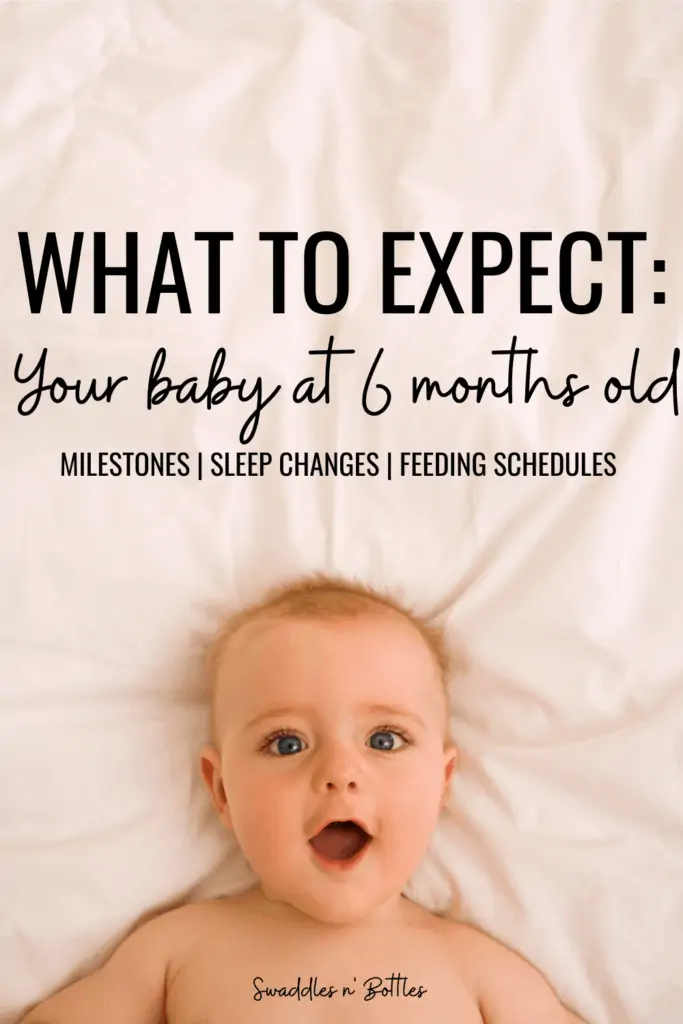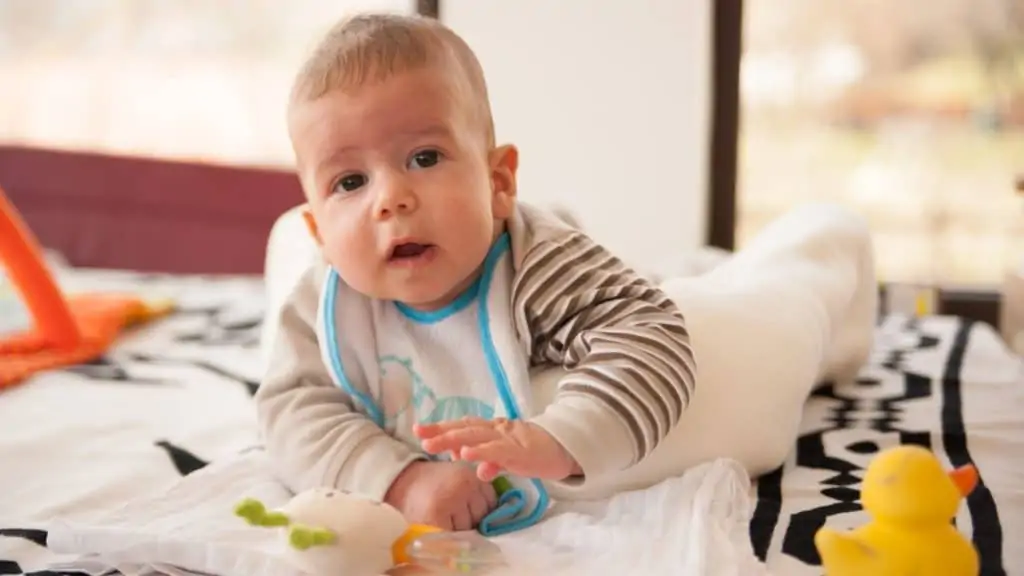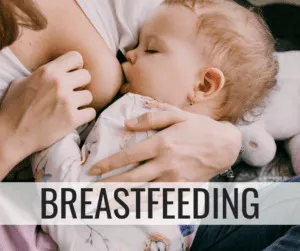
The Sixth Month!
This is the sixth month of life for your baby. At the end of this month, your baby will have his or her half-birthday! The past five months have flown right by. Can you believe it? Your baby has lived through two seasons already. The differences in your parenting comfort and your child’s size from day one are mind-blowing. What can you expect this month?
Cognitive
Cognitive changes are still happening at lightning speed. However, these sometimes come in the form of emotional changes more than intellectual ones.
Fear
Fear of strangers may begin to settle in at this point. Your baby is not sure about people outside his or her inner circle. Even family members who aren’t around much may spark a sense of fear. Your baby will often cling more to you and pull away from the unfamiliar. Luckily, at this age, your child will almost always warm up to the “stranger” quickly if mom or dad seems comfortable. It is okay to tell strangers that your baby is uncomfortable and give your baby the time they need to get acquainted with their new friend.
Separation Anxiety
Separation anxiety doesn’t settle in as a development stage until around 18 months old. However, it is not uncommon for your child to feel upset when you leave or are out of sight between the fifth and sixth months. This fear often subsides within moments and doesn’t present as intensely as the later stage, but don’t be surprised to notice your child getting fussy if you are not close to them.
Cause and Effect
Though your baby has no idea what the terms “cause and effect” mean, they do know that if they drop their rattle, you will often pick it up. They have learned to manipulate your actions. Nothing will give your baby more joy than to drop their rattle and watch you pick it up. From a highchair, this is even funnier. Remember, at this stage, just about everything is a learning activity for your little.

Copycat
Your baby will try to do all the things that you do. You can see them thinking as you wipe their highchair tray, and their hands will spring into motion. If things like food fall on the floor, that will be hilarious too! Not only is your child learning cause and effect, he or she will also be learning how to control those muscles and use intentional movements.
Sleep
Your baby still needs about fourteen to sixteen hours of sleep each day. This may be taken in either several naps and sleeping through the night or only a few short naps and sleeping longer at night. Some children will sleep up to twelve or thirteen hours at night. Ensure that your child is getting adequate sleep as rest provides his or her body with the time to repair and develop growing muscles and synapses.
Physical
Like the above cognitive changes, the physical changes happen rapidly right now. Every day it will seem your baby has learned to do something new.
Sitting Up
Your baby may not be sitting up alone quite yet. However, your baby can often sit if propped against pillows. Your baby will probably try to sit on their own and will like to sit up in your lap. It won’t be long before your baby will be pushing up into a sitting position.
Passing Things Back and Forth
Your baby will begin to pass toys back and forth. Rattles and other small toys will not stay in one place for long. Likewise, your child is likely going to begin reaching for things that are farther away. Ensure you are keeping a close eye on baby as they are getting more mobile and curious!

Building Core Strength
Core strength is what will help your child sit, stand, and walk in the coming months. Stretching for toys, crossing midline with toys, and sitting up with help can all work to build the core strength that they need. Your child will also still benefit from tummy time and playmats.
Chowing Down
Up to now, your baby should have had only had either breastmilk or formula. Now, so long as he or she is showing all the signs of readiness, they can begin tasting “first foods”. These foods are packed with nutrients designed with your child’s development in mind. Be sure that you are offering just one new food every few days. Bananas are often a favorite for a start. You can even mash your own if you want. Here’s a complete guide we’ve created to help you with baby’s first bites.
Delayed Milestones
If your baby is not reaching for things in reach, you might need to have their motor skills evaluated. Likewise, not trying to put things in their mouths is a red flag. Children’s motor skills are usually developed enough to direct where they move things in their hands. If the babbling sounds are not progressing, this may also indicate some speech or hearing difficulties. The good news is that all of these issues can be treated with early intervention through speech, physical, or occupational therapies.
Pep Talk
Your baby might not be ready for food as soon as you are ready to feed them. That’s okay. Start with very thinned rice cereal and move up to the pureed foods listed above. Even when you introduce a new cereal, avoid changing grains for several days to watch for allergies.
Talk to your baby and enjoy the sounds and laughs. This time will not last. Babies grow up faster than you can imagine.












